The way things work
Applied Sciences and Mathematics
Learning Domains:
Mathematics, Chemistry, Physics, Engineering, Technology
Ages 5 and 6
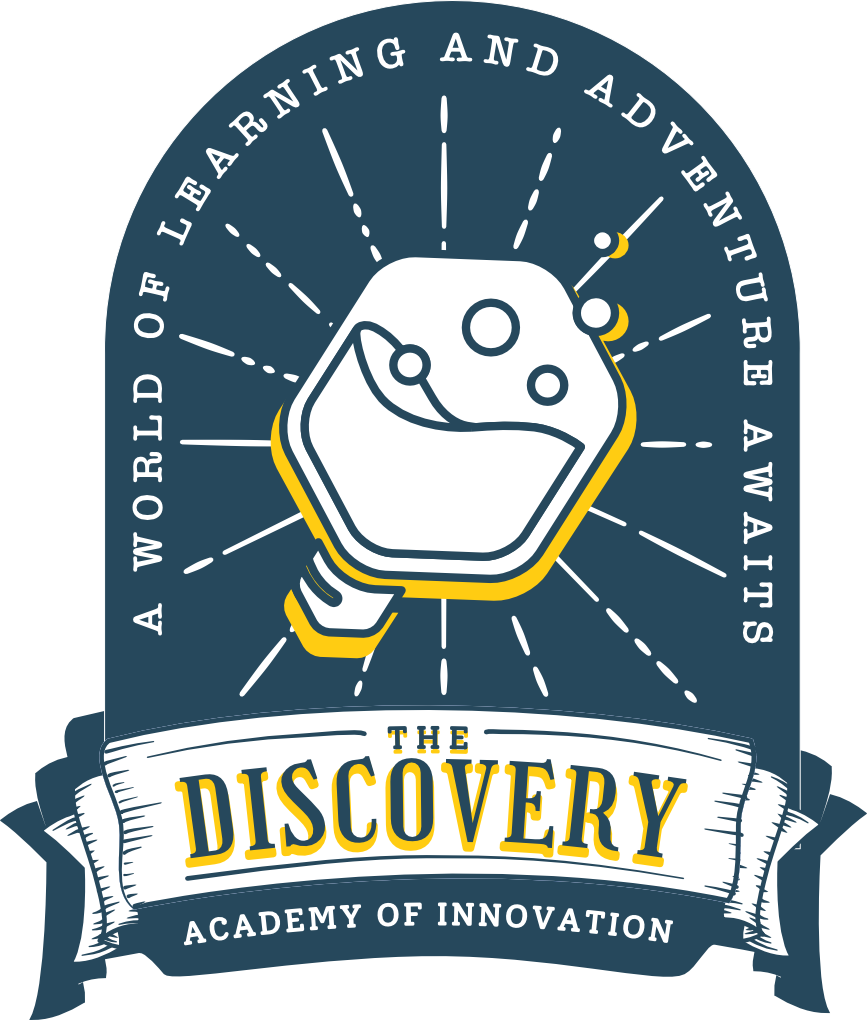


A Nurturing Ennvironment
A nurturing environment allows children to develop meaningful relationships with their teachers, peers, DAI families and other members of the school community.

Love of Learning
Play-based, interest-driven and inquiry-led education foster curiosity and a love of learning, which are key in raising lifelong learners.

Purposeful Use of Technology
The purposeful use of technology and everyday materials stimulate the mind, engage the senses and empower children as makers. Children come to develop a nuanced understanding of the possibilities of materials, the affordances of technology and their role as creators.

Academic Rigor
Academic rigor and the constant pursuit of excellence equip young children with the knowledge, skills and dispositions necessary for school readiness and success.

Children as Innovators
A focus on designing, building and inventing empowers young children as innovators, helping them understand that their ideas are valued and can be realized with time, effort and perseverance.

Future Changemakers
Situated learning environments provide opportunities for the application of knowledge and skills in real-world contexts, transforming the world into a learning resource and testing ground for their ideas and innovations. Children come to understand that their ideas and creations have the power to make a difference in the world.
The school year for Kindergarteners is divided into quarters. Each quarter is defined by the following learning experiences:
Each day consists of an hour of self-directed or minimally guided station-by-station play.
These play experiences are designed around a particular unit of inquiry (Example: Exploring the people in my neighborhood) and are aligned with a particular integrated domain (Example: Once Upon a Time, Integrated Humanities and Social Studies).
Each day likewise consists of an hour and a half of structured class or lab time. Class time and lab time are meant to reinforce learning from station by station play. Class time and lab time are likewise aligned with a particular unit of inquiry and integrated domain.
Adventures in Discovery are weeklong or two-weeklong learning experiences, comprised of Daily Modules, and organized around a particular unit of inquiry. These allow students to explore concepts (for example, light) using different approaches, methods and ways of knowing (light from the perspective of science, art, technology - even literature).
Missions consist of progressively difficult and complex tasks that allow for deeper learning, enhanced skill-building and content mastery. Missions may involve creating a Mars rover (Science), producing their own news show with handmade puppets (Filipino Language Arts and Current Events) or creating life size geometric sculptures (Math and Art education).
The last two weeks of each term is dedicated to assessments. While formative assessments are present throughout the year, end of term assessments involve large-scale projects that demonstrates mastery and provides opportunities for students to reflect on their learning experience.
Kindergarteners are given opportunities to explore concepts utilizing the different ways of knowing.
The integrated domains at the Discovery Academy of Innovation are as follows:
Applied Sciences and Mathematics
Learning Domains:
Mathematics, Chemistry, Physics, Engineering, Technology
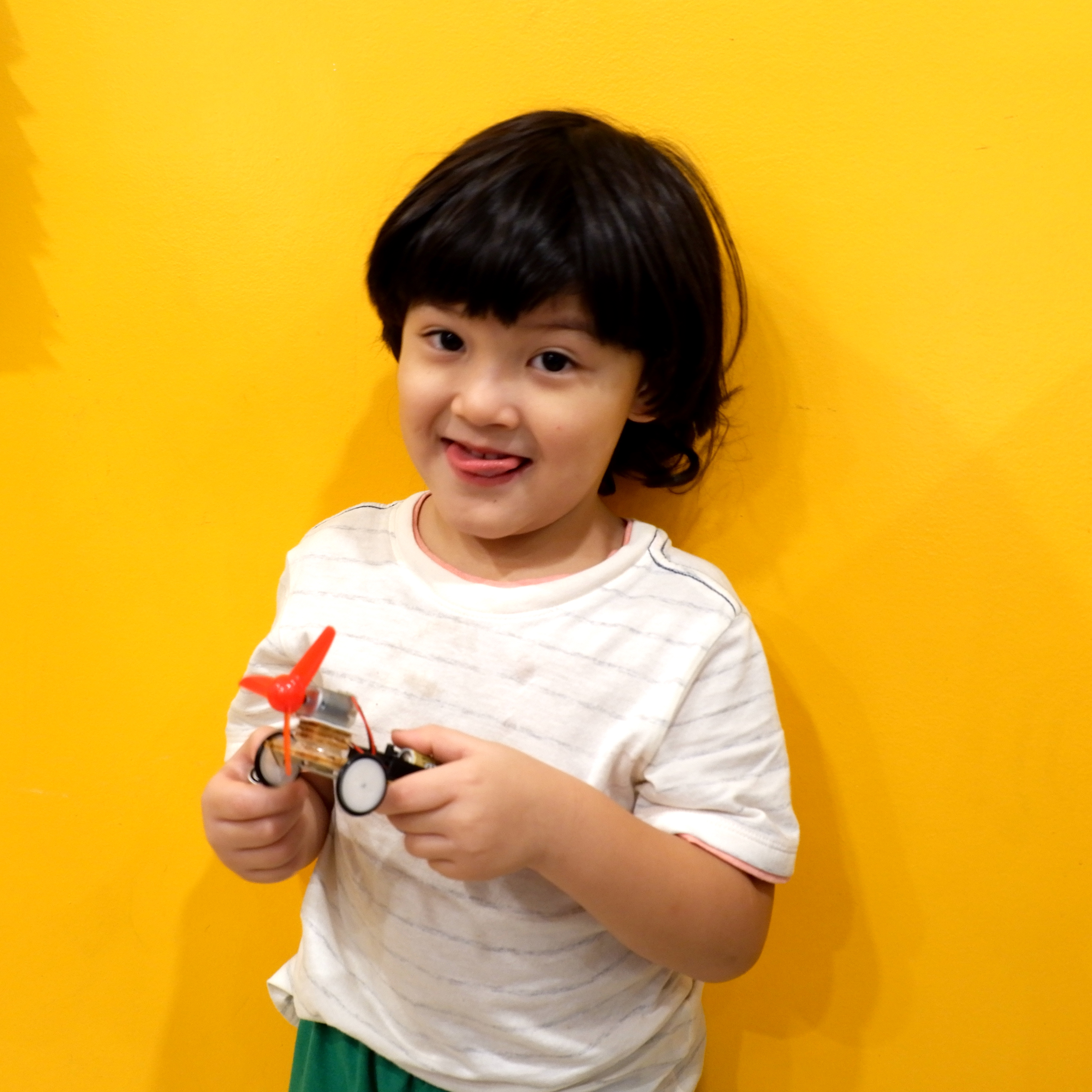
Humanities and Social Studies
Learning Domains:
Socio-Emotional development, Values development, History, Literature, English Language Arts
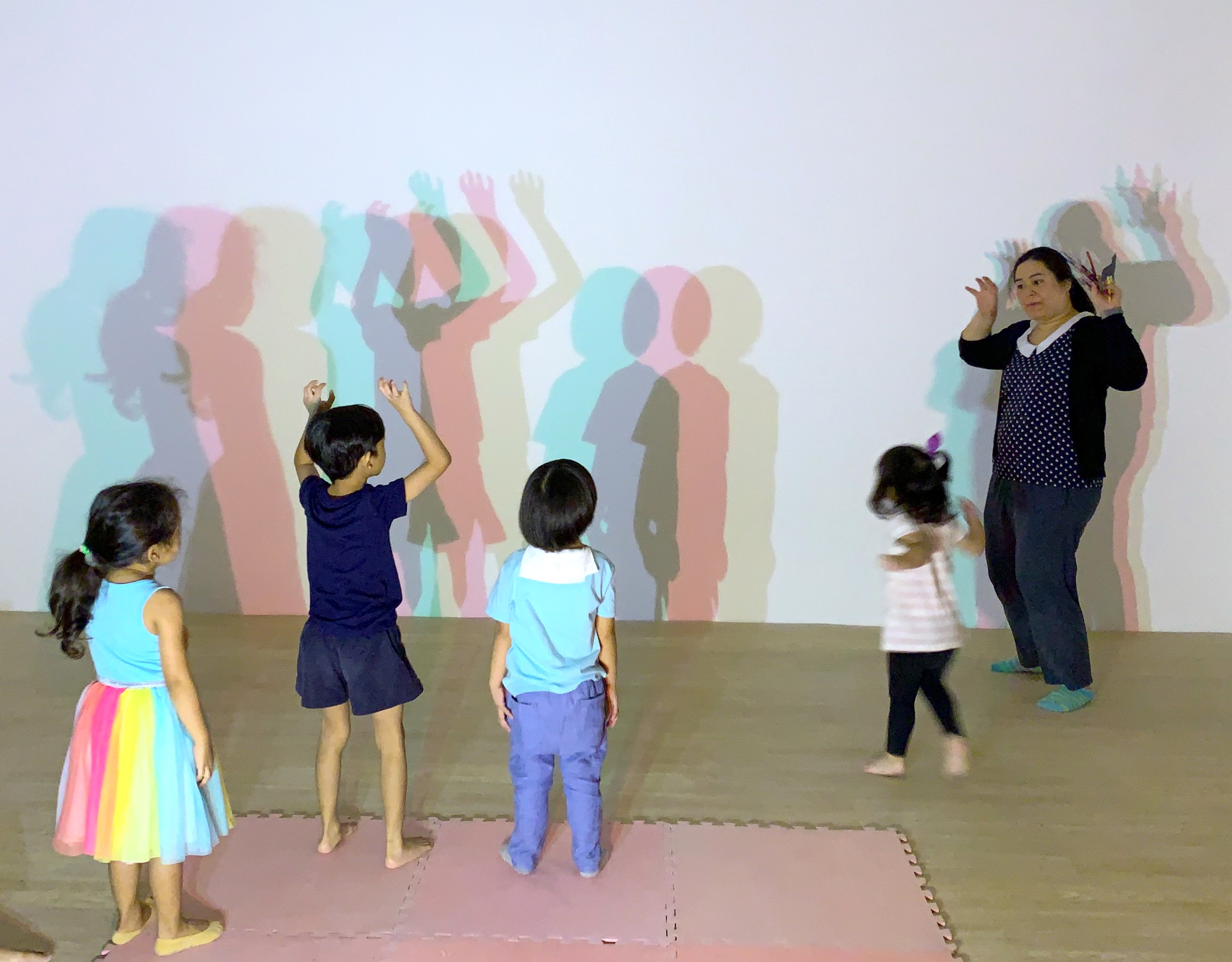
Natural and Applied Sciences
Learning Domains:
Socio-Emotional development, Biology, Health, Nutrition, Wellness, Physical education, Understanding the physical and natural environment including earth science and space science
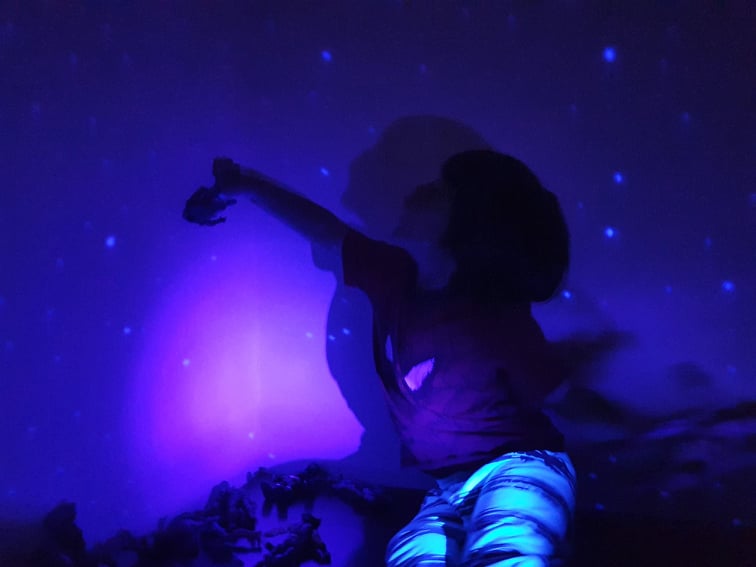
Critical Making, Global Citizenship Education
Learning Domains:
Values development, Current affairs, Social studies, Design, Engineering, Technology, Filipino Language Arts

Formal Sciences
Learning Domains:
Mathematics, Computer Sciences, Technology
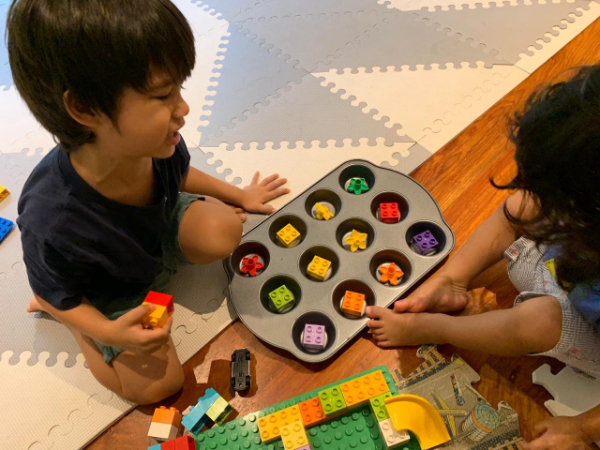
The Arts and Applied Sciences
Learning Domains:
Visual arts, Performing arts, Digital media arts, Aesthetic and creative development

Our Kindergarteners kick off their day with their advisory class. Attendance is checked, announcements are made, kids learn about the weather and the day of the week. During this time, teachers, puppets and even animated characters present kids with the unit of inquiry for the week.
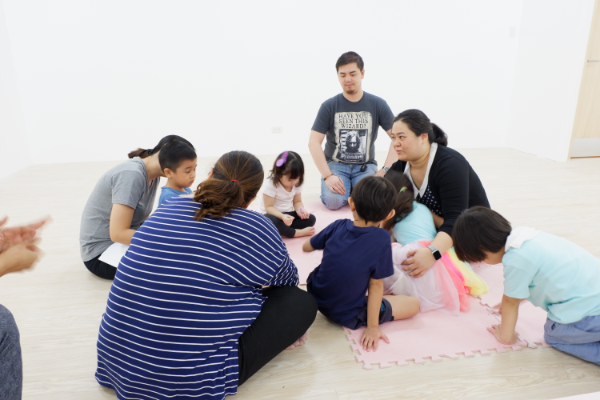
Kids engage in self-directed and minimally guided play at their centers of choice. Each center is thoughtfully prepared by teachers and instructional designers to encourage play and discovery around a particular domain of knowledge and a particular unit of inquiry.
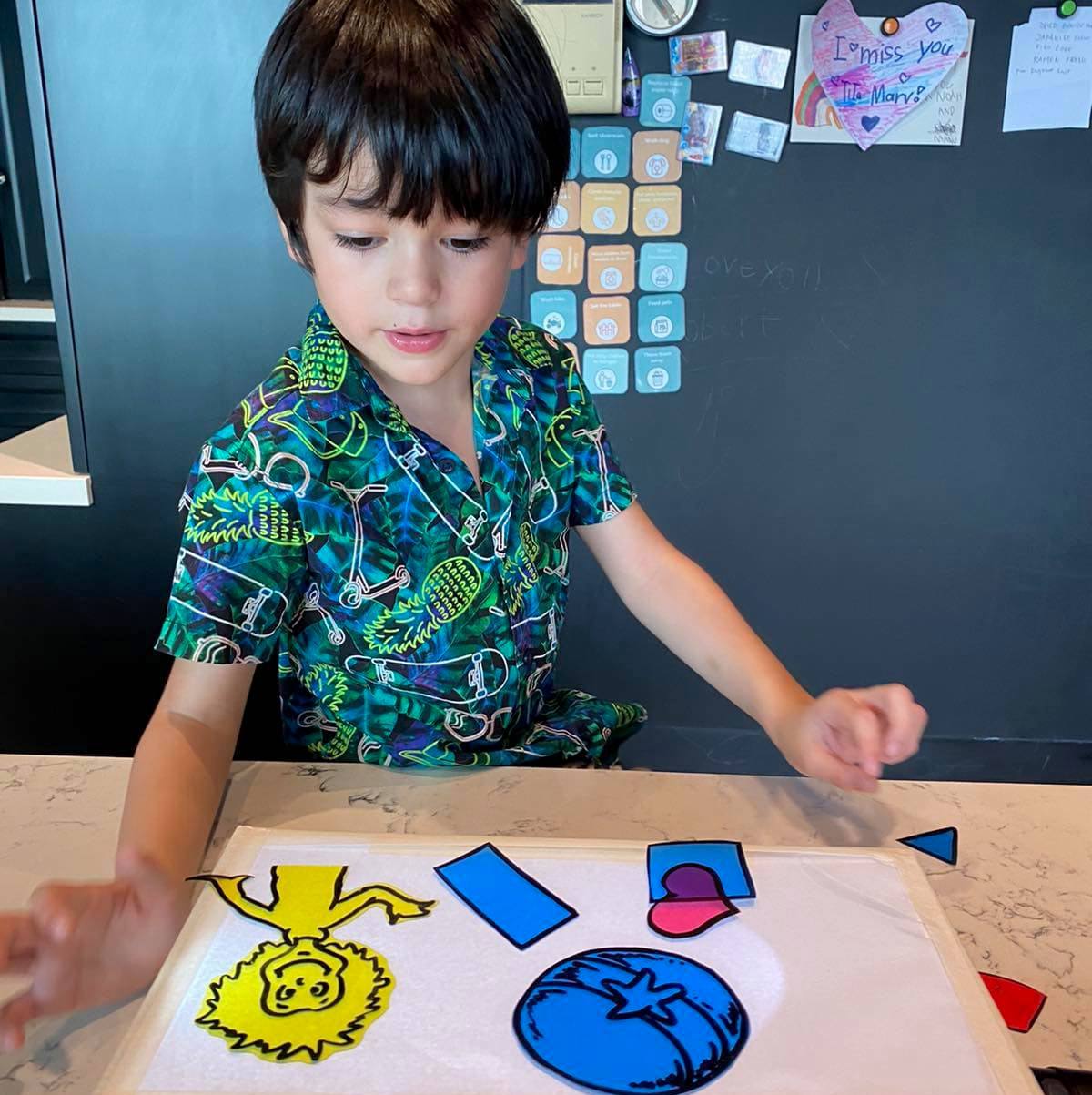
At the Discovery Academy of Innovation, we believe that play is serious business. Playground time provides our Kindergarteners with a safe space where they can run, jump and move about — taking calculated risks as they push the limits of their physical abilities. Playground time is also a space where kids can come together, play, make up games, define rules, negotiate different points of view and learn to settle conflict.
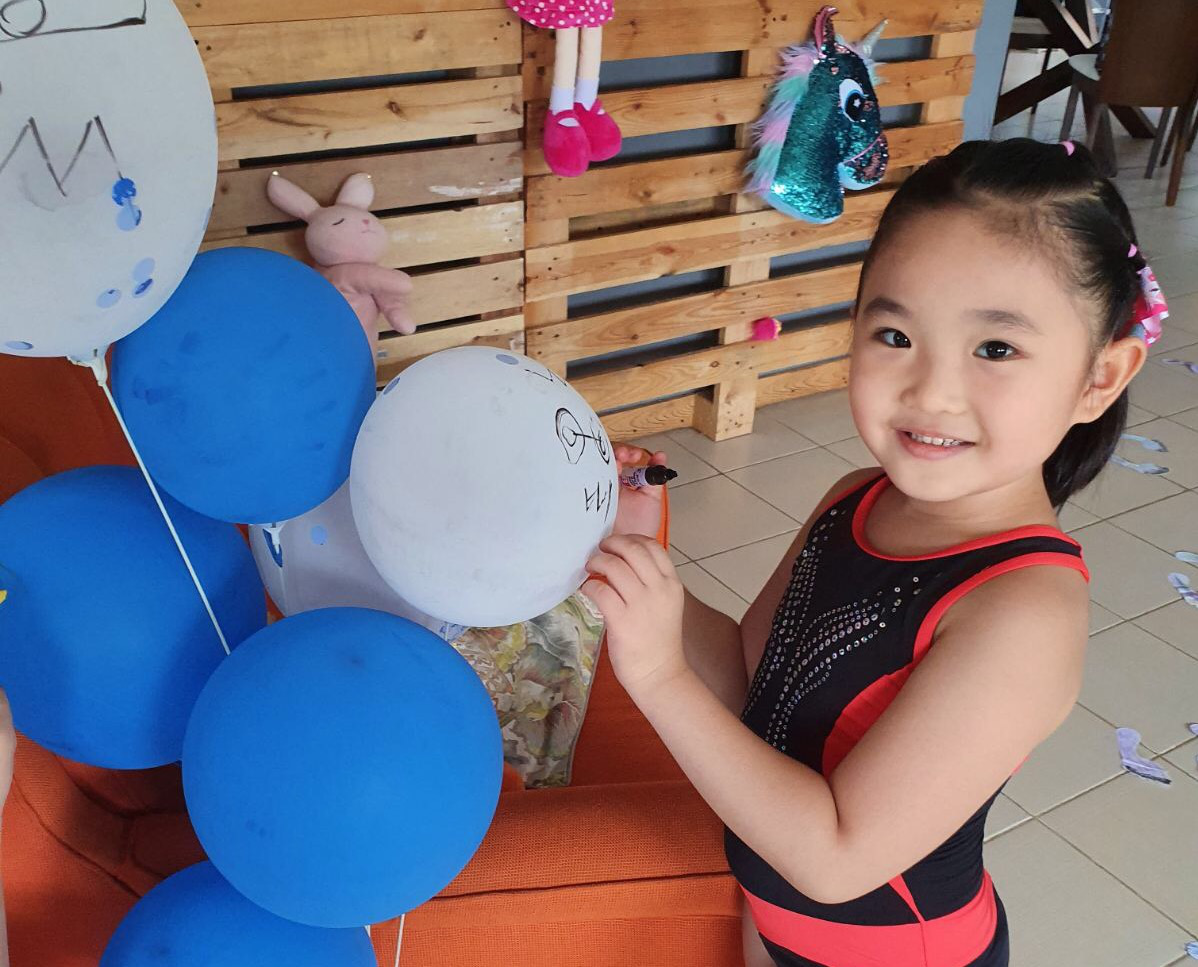
Lab Time is an opportunity for teachers and teaching assistants to work with Kindergarteners on a one-on-one basis. Together, they assess student’s strengths, define areas that need support and make recommendations on a student’s learning trajectory moving forward.
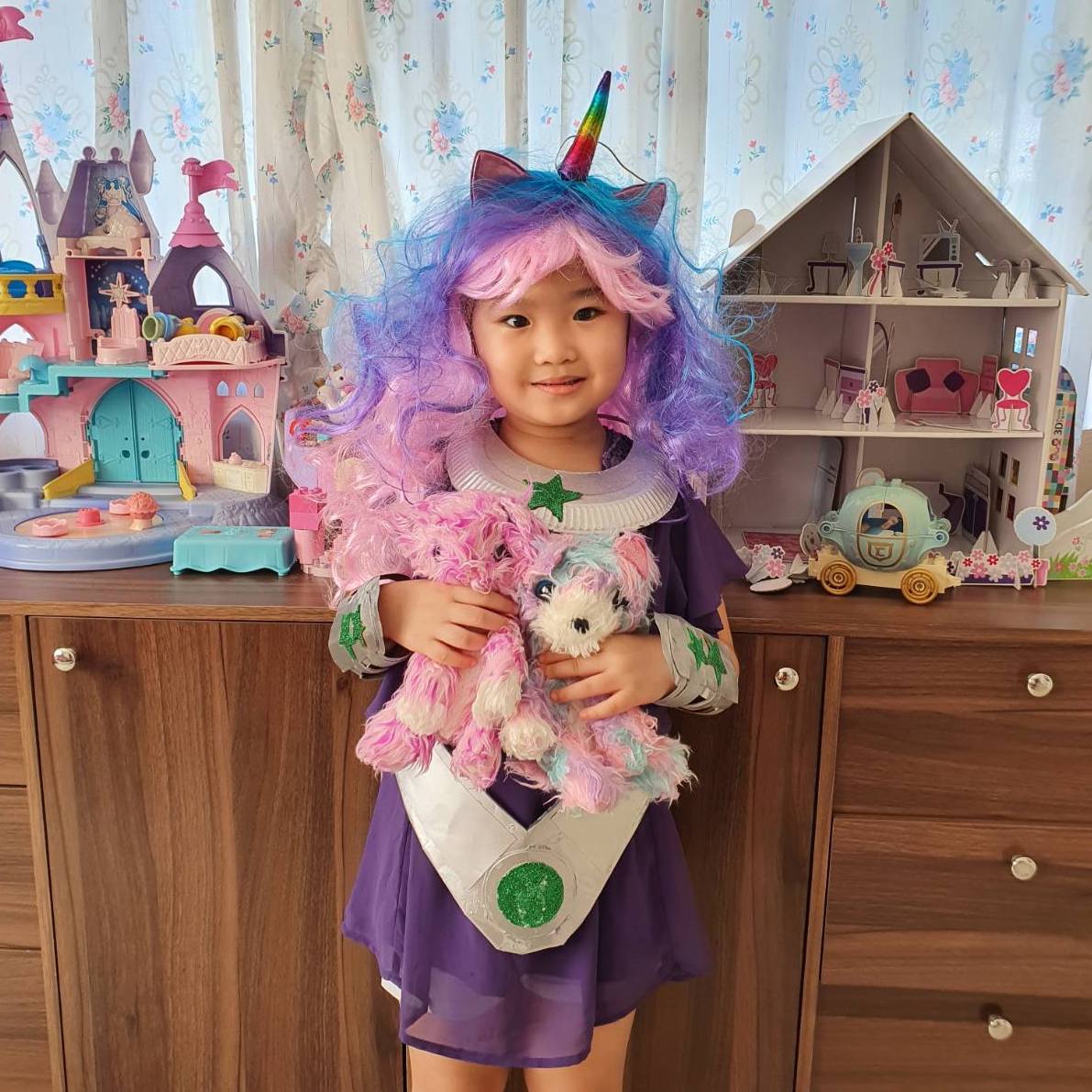
Class time is a more structured experience that reinforces learning through station by station play. Class time may consist of discussions, design challenges, individual and collaborative projects, role-playing, experiments and games.
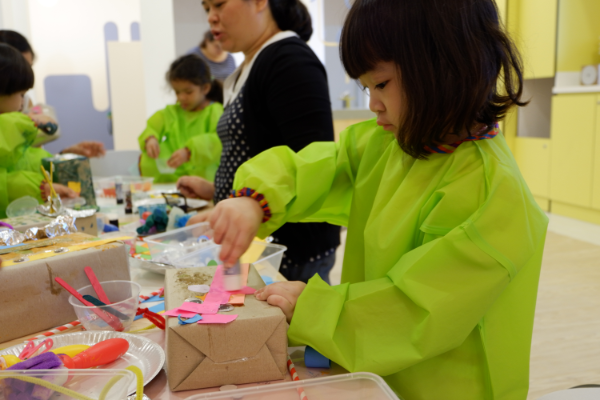
| Time | Class |
|---|---|
| 8:00-8:10 | Hello! |
| 8:10-9:10 | Exploration Stations |
| 9:10-9:30 | Snack Time! |
| 9:30-9:40 | Huddle Up! |
| 9:40-11:00 | Tinker Studio! |
| 11:00-11:40 | Playground Time! |
| 11:40-12:00 | Good Bye! |